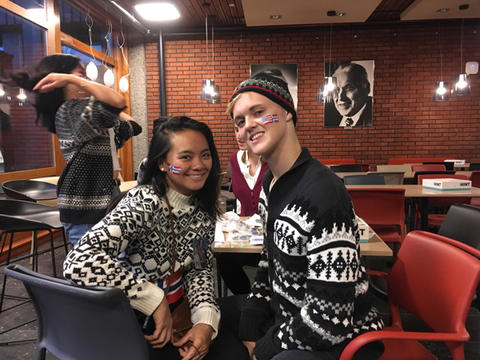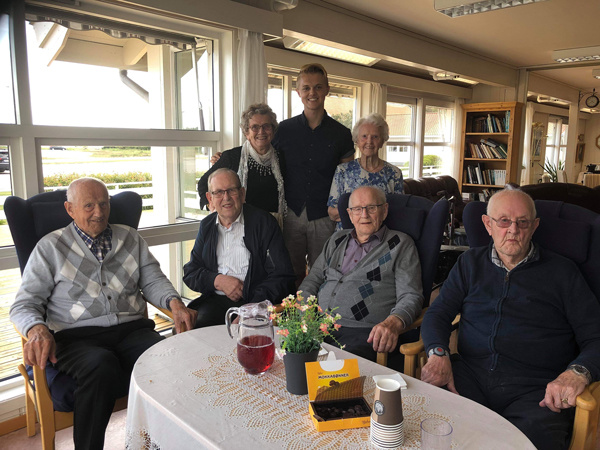
When I took the first steps in my decision to study abroad in Norway, my expectations were different than they are now. I came in more than ready to travel outside the United States since neither me nor my family has ever done so. Norway always had a special place in my heart not only for its fascinating culture and beauty, but also because of my family’s connection to this Scandinavian country. Living in that country for a year changed me. I had a utopian mindset that Norway was this perfect place far superior to any other, but the longer you live there the more you realize how people and places across the world really aren’t that different. Sure, there are some cultural and governmental differences, but people go about living their daily lives and have the same aspirations and goals as you would in the U.S., or anywhere in the world for that matter. People really aren’t that different, and this I took home with me.
It all felt strange, and it was even more so regarding my first-generation student identity. The idea of a first-gen community doesn’t exist in Norway. Of course, students still have a wide array of campus resources to help in their academic success, but nothing specifically tailored for students who are the first in their family to receive a higher education. This may be because virtually all Norwegians attend, or have attended, higher education or some equivalent beyond high school (it is free after all). This tradition is decades old, to the point that a first-gen community may not be relevant in Norway.
Norway is truly a unique place when exploring one’s background and diversity. Like the other Scandinavian nations, Norwegians, within their society, have specific expectations for themselves and of everyone they come across. The largest of these expectations is the idea of ‘sameness’ in the community. Norwegians are expected in their culture to care for others and not look down on anyone; you are also not to act in a way that portrays oneself as better than others. The idea of the ‘common man’ is important in Norway, and it has been that way for the many centuries prior, when Norway was a poor and impoverished nation.
This is great in one’s sense of belonging within the communities and society, but coming from the United States as a queer student it seemed quite odd. There wasn’t much of a LGBTQIA+ scene in Oslo, and those who are a part of the community rarely express their queer identity. For instance, in the city of nearly one million people, I was able to count the number of gay bars on a single hand. That’s not to say that LGBTQIA+ folks are discriminated against and must hide their identity; rather they are so accepted by society that they feel little need in expressing their identity. I eventually did manage to find a queer social group for young adults, and I contributed by being a member of the board, but even that felt low-scale to me.

My biggest self-discovery while abroad is that I cannot do everything on my own, even if that is what is most comfortable for me. I think this was most prevalent in my classwork. Assignments in Norway are very different than at Iowa, at least for political science, in that they were far more writing intensive. The European writing style is also quite different in what they require from students, so I felt ill prepared. In Norway there’s also far less emphasis on communicating with other students or with the professors; it’s expected that you do things on your own and use the resources that are given to complete these tasks. So how does an American overcome these obstacles? Simple: work with European students who have done this for years. Working with the European friends I made while in Oslo was my best tool in passing my classes. This showed itself in my grading. I achieved more in the classes where I reached out to my friends and made the effort to work with them on class notes, essays, and studying, while my grades in classes where I stayed in my comfort zone by isolating myself were among the worst during my time in university. I knew this back in Iowa, as well, because it’s what advisors and professors emphasize to students, but it didn’t truly affect my work until Norway when the burden became too much for me to handle alone. As I head into my last year at Iowa, I know more than ever that I shouldn’t be afraid to reach out for help when I need it and that other people, whether students, teachers, or advisers, will be my best tool to ensure I reach my goal of finishing strong academically, feeling confident that I did the best I could.
Jon Sanford
Please note that the opinions and views expressed by diversity ambassadors are solely those of the students and do not reflect or represent the views of International Programs or the University of Iowa.